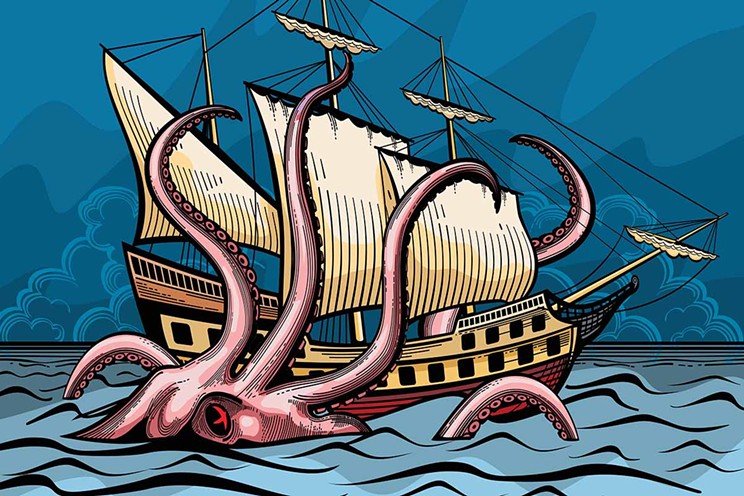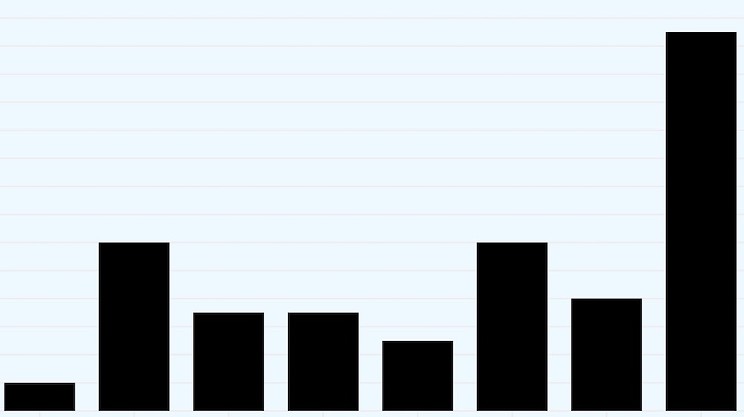Update Jan. 6: Nova Scotia has had two confirmed cases of the Kraken variant, the province tells The Coast, so this story has been changed to reflect that.
To recap: 2020 introduced COVID-19 to a world of humans who had no immunity to the virus. 2021 brought vaccines to help humanity gain immunity without infection. 2022 was the year of the fast-spreading omicron variant, extending the pandemic. Now it’s 2023, the fourth year of COVID. What’s going to happen next?
Talking with The Coast in late 2022, Nova Scotia’s chief medical officer of health Dr. Robert Strang mapped out the above timeline and said he was hopeful that 2023 would bring the official end of the pandemic—meaning COVID would become an endemic disease like the flu, which cycles between active and dormant periods, instead of COVID’s current constant global threat. Then again, Strang thought vaccination would have brought about endemic COVID in 2022, except it turned out omicron was good at evading the first generation of vaccines.
“We will get to, ultimately, a true endemic state,” Strang said in September. “But omicron has been throwing us some curveballs.”
Now two new curveballs are emerging to make 2023 predictions even more difficult. First is COVID strain XBB.1.5–a subvariant of omicron better known by its sea monster nickname Kraken. Second is the situation in China, where the world’s strictest pandemic lockdown is ending without a strong vaccination program, offering the disease a fresh, massive population of immune-naïve people.
Kraken is showing signs of being the fastest-spreading variant yet, as Andrew Nikiforuk explains in his good summary of all this stuff at The Tyee. “But no one really knows how bad Kraken’s health impacts may be,” Nikiforuk writes, “until authorities get a handle on hospitalizations, deaths and chronic disease—a process that could take weeks.”
As for China coming out of lockdown, to the virus this would be like discovering an uncontacted tribe in the Amazon, albeit a tribe with well over a billion members. COVID’s opportunity to start fresh here leads to a pair of big problems: Millions of Chinese are projected to die, and the virus gets a lot of chances to mutate.
“Many more hosts means all of the mechanisms of new variant evolution will be happening more,” explains a biologist quoted by Nikiforuk. “That means more persistent infections and intra-host evolution, more possible ping-pong zoonosis with other species, and more co-infection and recombination.”
Rebooting in China could help the virus develop the next omicron (or the next Kraken, if that ends up meeting the worst-case fears). That is, the sort of variant that sets back humanity’s efforts to fight COVID, extending the pandemic for months or years.
Canada is among many countries that are ringing in 2023 with various restrictions on travel from China, as if these sorts of measures will work better in pandemic Year 4 than in years one through three.
Here in Nova Scotia, the first COVID numbers of the new year came out Thursday. The Coast has rebooted its page of weekly charts for 2023 here, and you can get the 2022 page here for reference. At the data dashboard for Jan. 5, the province is reporting 7 deaths from COVID over the last seven days, 866 new infections and 41 patients admitted to hospital because of the disease. All these numbers are in line with Nova Scotia’s low COVID activity over the last couple of months, although the latest infection numbers are showing an upward trend from December to now.
There’s no indication this rise is a Kraken surge; it could be a blip in new infections of regular old omicron due to increased socializing over the holidays. But Kraken is definitely here.
"There have been two cases of the COVID-19 XBB1.5 variant confirmed to date in Nova Scotia," a provincial spokesperson emails The Coast. (Remember back in the earlier days of the pandi, when the province had to send samples to the National Microbiology Lab in Winnipeg in order to confirm virus genetics? Since June 2022 we've been able to do this locally, at the QEII health centre's provincial public health laboratory.) Nova Scotia's two Kraken cases join the one reported in Newfoundland and Labrador on Thursday.
As Doctor Strang said shortly before regular old omicron was first confirmed in the province: “It’s a matter of not if but when we see this variant here in Nova Scotia.” Kraken getting here was inevitable, and we don't know yet if it will bring worse health effects than any other omicron relation. So at this point the fourth year of COVID is beginning quietly in Nova Scotia, a welcome change from the tidal wave of cases that welcomed 2022. But there’s a lot of time left in 2023 for the curveballs to arrive.



















